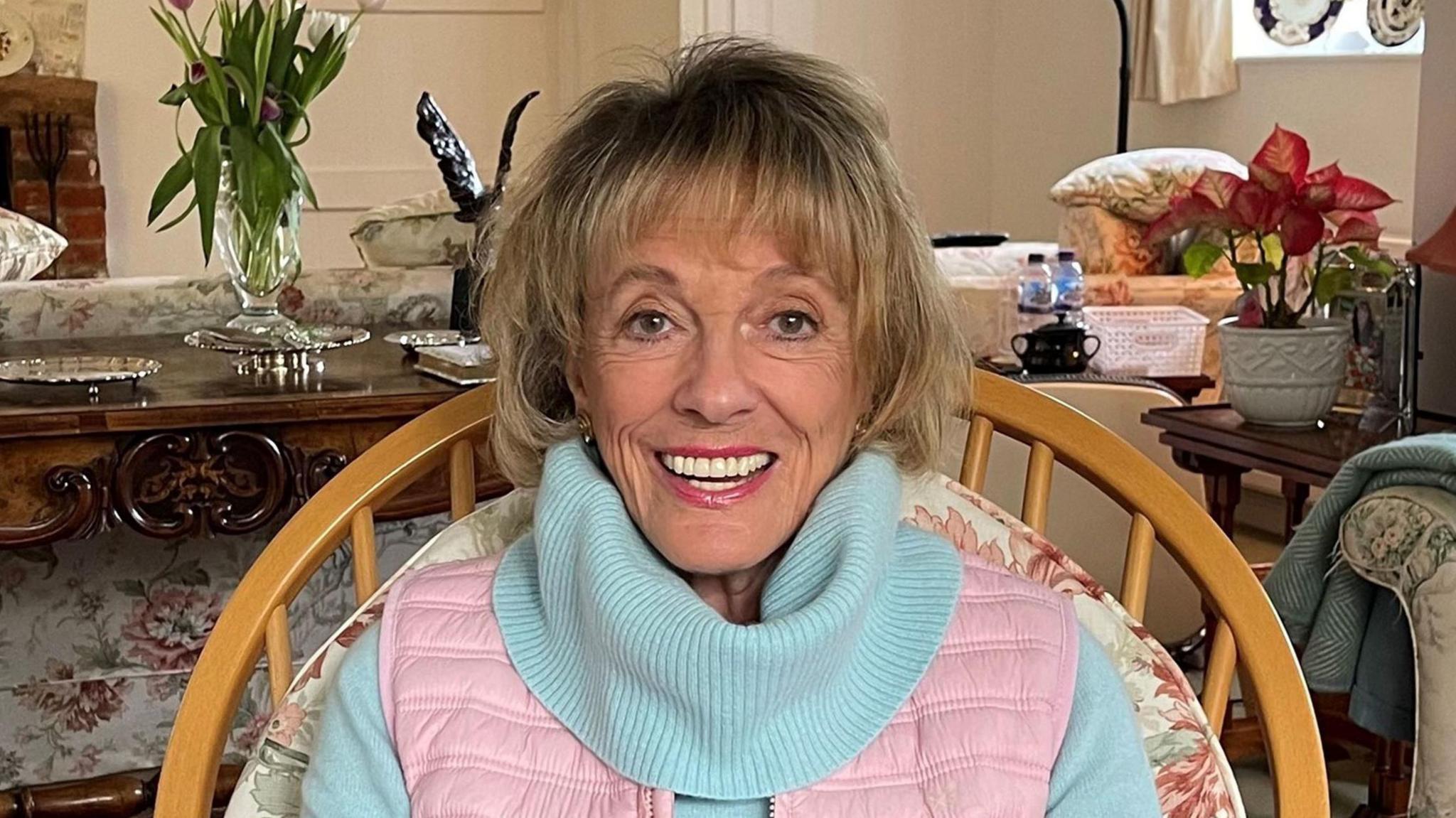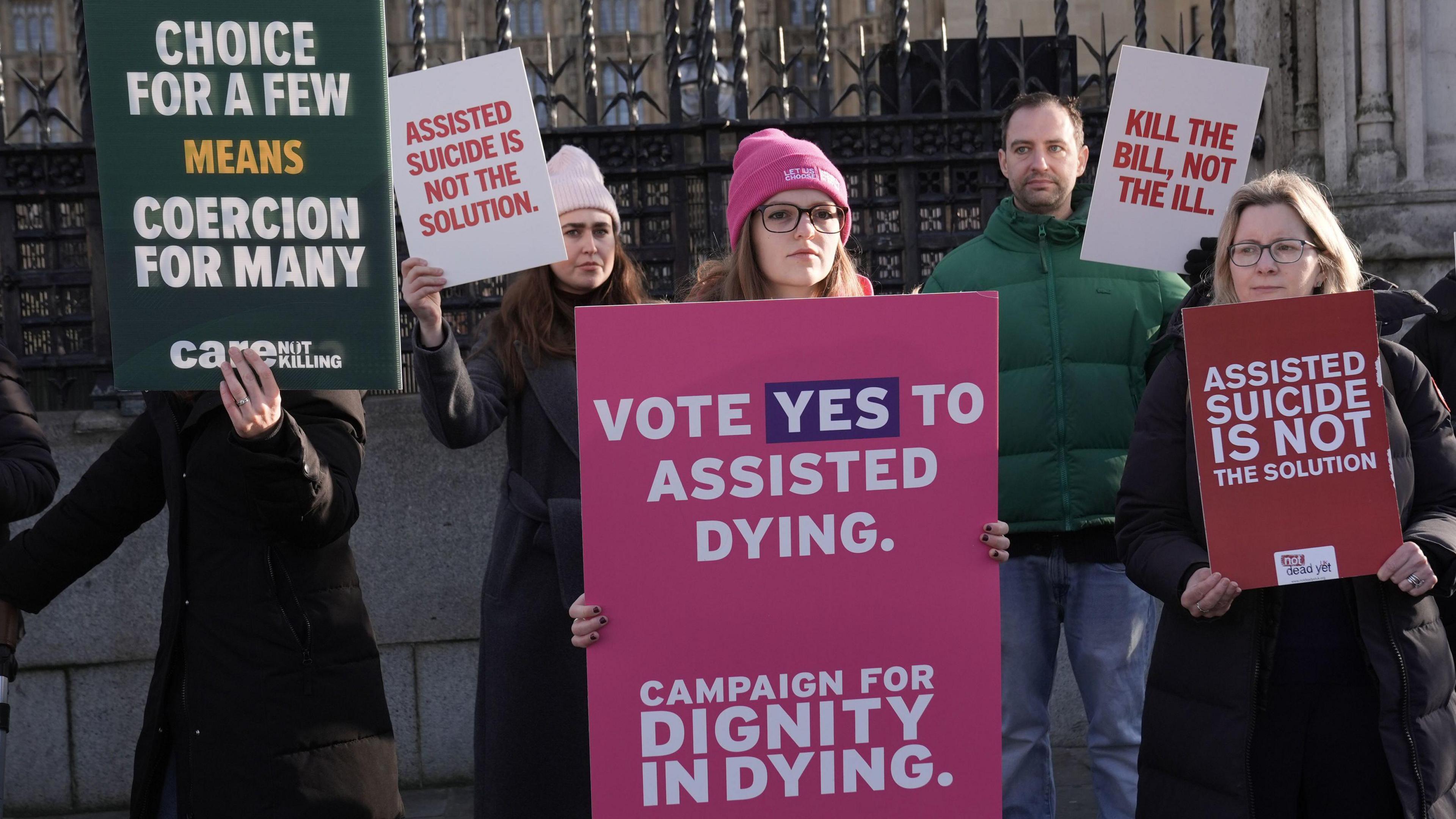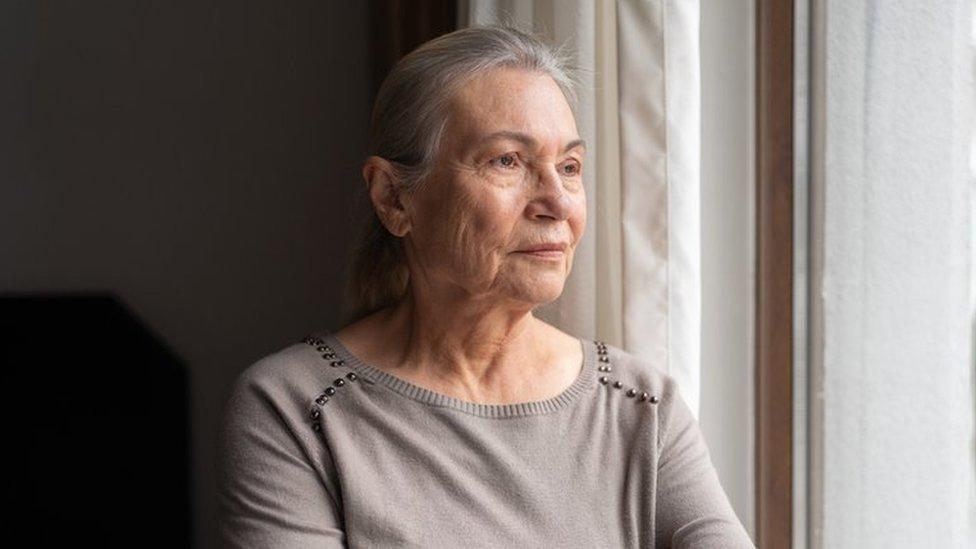Rantzen's 'great relief' after assisted dying vote

Dame Esther Rantzen is 'relieved' after MPs vote for assisted dying bill
- Published
Dame Esther Rantzen has said she feels "great relief" after MPs backed proposals to legalise assisted dying in England and Wales.
She has described the historic vote, which will pave the way for a change in law, as "a good day for parliament".
The broadcaster previously revealed she joined Dignitas, the assisted dying clinic in Switzerland, after a terminal lung diagnosis.
She told BBC Radio Solent she was "hoarse with emotion" after watching the vote go through on Friday.
The vote was the first in the House of Commons on the issue in nearly a decade and saw MPs support a bill that would allow terminally ill adults, expected to die within six months, to seek help to end their own life.
Dame Esther previously said she thought she would be "long gone" by the time MPs debated assisted dying.
She told presenter Lou Hannan: "[It's] a great relief because the last time parliament debated this topic there was a huge majority against, so it shows how much has changed.'
The Childline founder, who lives in the New Forest in Hampshire, said she hoped the discussion of the bill would increase conversations around palliative care.

The broadcaster previously confirmed she had joined Dignitas after a terminal lung diagnosis
Recalling watching the vote on television, Dame Esther said she felt "hoarse with emotion".
"That moment when they went to vote was extraordinary," she continued.
"People felt so strongly, they talked so passionately, and I was particularly struck by the doctors who are now MPs talking about their own experience.
"Some of them talking about how helpless they felt when their patients were going through terrible, harrowing experiences and I thought that was very moving."
Rantzen did not expect to see assisted dying bill
- Published29 November 2024
Esther Rantzen urges MP lobby over assisted dying
- Published16 October 2024
Rantzen begs MPs to attend assisted dying debate
- Published29 April 2024
Rantzen says she's joined assisted dying clinic
- Published19 December 2023
'Would do the same again'
BBC Radio Solent listener Richard Geary, from Hythe, said the bill was a "massive step forward".
He has campaigned for the right to assisted dying for the past 15 years, since his wife, Jennifer, joined Dignitas.
She was diagnosed with a neurological disorder called multiple system atrophy (MSA) at the age of 61.
Mr Geary explained the prognosis was "pretty grim", and said: "She would end up ultimately in a hospice being artificially fed through tubes, being artificially kept clean, yet her consciousness would be perfectly unaffected."
Richard Geary travelled with his wife Jennifer to Dignitas in Switzerland in August 2009
In 2009 the couple drove to Switzerland and Jennifer "passed peacefully away", Mr Geary said.
He added: "At the end of the day it was what Jennifer wanted and it saved her suffering. I would do the same again to prevent that suffering."
Talking about the bill, Mr Geary said: "To the people who oppose it, they're never the ones that are ill and they're not suffering and they're not putting themselves in the situation of the patient that's suffering whatever terminal illness they've got."
The Terminally Ill Adults (End of Life) bill will now face months of debate and scrutiny by MPs and peers, with the approval of both Houses of Parliament required before it becomes law.
Get in touch
Do you have a story BBC Hampshire & Isle of Wight should cover?
You can follow BBC Hampshire & Isle of Wight on Facebook, external, X (Twitter), external, or Instagram, external.
- Published29 November 2024

- Published29 November 2024

